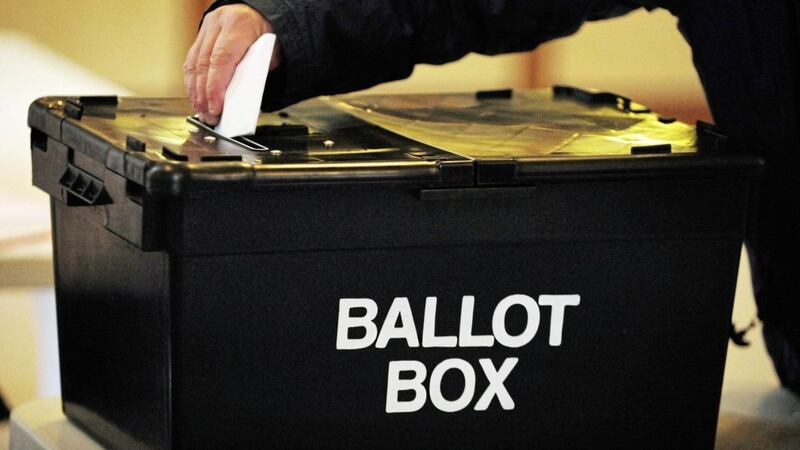NEW proposals to change UK referendum rules requiring almost two-thirds support for any constitutional change would override the `simple majority' terms of the Good Friday agreement (GFA).
The Referendum Criteria Bill, which is awaiting its second reading in the House of Lords, proposes that "constitutional or parliamentary arrangements" can only be changed on a turnout of more than 55 per cent of the electorate.
If enacted it would require a majority of 60 per cent to be successful.
According to the UK's leading research body on constitutional change `The Constitution Unit', the 1998 Northern Ireland Act and GFA "are cast in terms of a simple majority vote in a Northern Ireland poll, and with no minimum turnout threshold: 50% + 1 suffices", with a "binary" choice "between remaining in the UK and a united Ireland".
There would be a simultaneous poll in the Republic.
The Private Members Bill by Lord Cormack does not have the official backing from the government and without it is unlikely to become legislation.
It is not thought to have been floated specifically as a means of thwarting the recent upsurge in call for an Irish border poll, with the Conservative peer on the record with his dismay over the way Brexit was handled.
Lord Cormack also has a fractious relationship with the Johnson administration, having criticised the now prime minister and then foreign secretary Jeremy Hunt for "an appalling spectacle" of appealing to just "500 paid-up members... in Northern Ireland" during the Tory election campaign during "the gravest crisis in Hong Kong since the handover".
However, the government benches will take note of what support it attracts as the makes its way through the formal processes in the two houses.
Private Members' bills introduced in the Lords can only continue to the Commons if an MP supports the bill and even then are unlikely to have much, if any, time devoted to them.
But if they do garner support in the Commons they are more likely to pass the Lords on their return and so become law.
QUB Professor of Human Rights Law Colin Harvey stressed that as a Private Members' Bill rather than a government bill it "is unlikely to go anywhere".
"However, the thinking that it reflects is worrying. Applying these criteria to a referendum on the constitutional future of this region would, in my view, breach the terms of the Good Friday Agreement," he said.
"Because of the nature of the British constitutional legal system (with its continuing emphasis on parliamentary supremacy) an Act of the Westminster Parliament would prevail in domestic law, policy and practice.
"That constitutional legal fact remains a major challenge for all those who wish to see the effective implementation of the Good Friday agreement and subsequent agreements. And also why there must be an agreed British-Irish framework for taking forward the envisaged referendums on this island."








